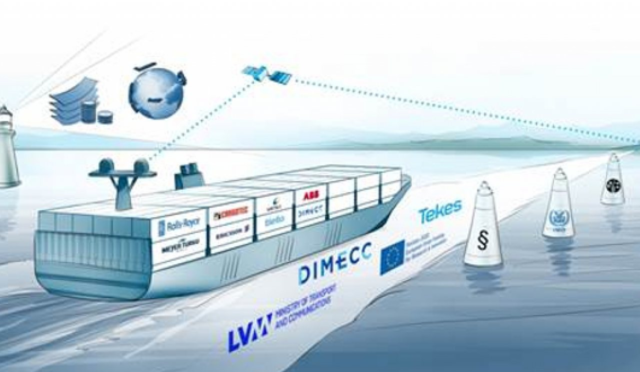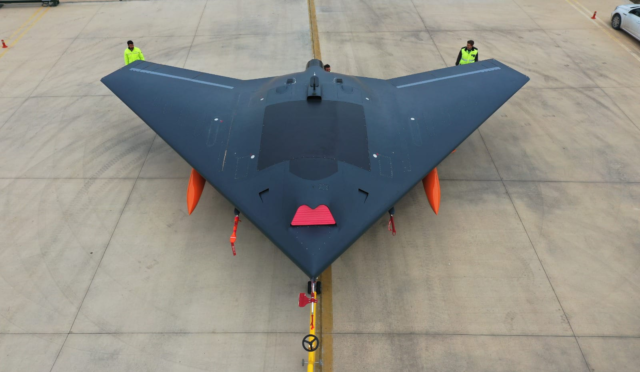The recognition of the Greek Cypriot Administration of Southern Cyprus (GCASC) by three Turkish republics is an utterly unacceptable situation from Türkiye’s perspective. Nevertheless, Türkiye, as it has done so far, continues to consider the sensitivities of the other Turkish republics and has refrained from making an official statement on this matter, which is of great importance to it, even up to this point. If the Turkish republics, in the context of a balancing policy aimed at countering the regional influence of China and Russia, have decided to enhance their bilateral relations with the EU and were compelled to recognize the GCASC as a result, their next step should be an apology to Türkiye, and the Turkish Republic of Northern Cyprus (TRNC) should be granted full membership in the Organization of Turkic States (OTS).
Following the collapse of the Soviet Socialist Republics Union (USSR), the Central Asian Turkish Republics, emerging as independent states on the world political stage, could not escape being depicted as Russia’s “backyard” for a long time. The Commonwealth of Independent States (CIS), established by Russia with its ambition to claim the Soviet legacy, has also remained a powerful actor in the region in this regard. Beyond Russia, these Turkish republics have established relations with their border neighbor China and the global power, the United States, and have begun pursuing a more independent and multi-vector foreign policy in recent times. In this context, they have carefully avoided unconditionally supporting Russia from the outset of its attacks on Ukraine, adopting a balanced foreign policy instead. In the subsequent period, they succeeded in creating a political structure to counterbalance Russia by increasing dialogue with both China and the U.S. Notably, in 2023, the U.S. President chaired the C5+1 summit for the first time, clearly demonstrating the importance attached to relations between Central Asia and the United States. In a period when relations between the U.S. and the EU have significantly deteriorated, we have collectively witnessed the relations between the EU and the Central Asian Republics evolve into a new dimension, reaching the level of a Strategic Partnership. This Strategic Partnership initiative was realized for the first time through the EU-Central Asia Summit held in Uzbekistan on April 3-4, 2025, an event likely to be repeated in the coming years. At the summit, the EU announced a 12 billion Euro investment package for the five Central Asian countries, including Tajikistan, signaling that the desired level of bilateral relations far exceeds this amount. More than half of the 12 billion Euro package will be allocated to initiatives in water, climate change, and energy, while the remaining portions will be directed toward transportation corridors to deliver Central Asia’s valuable minerals and raw materials to Europe more quickly and securely. Although many topics raised at the inaugural EU-Central Asia Summit warrant separate examination and discussion from the perspective of Türkiye and the Turkish republics, the simultaneous decision by three Turkish republics regarding Cyprus has drawn all attention solely to this issue.
The Name of Integration in the Turkish World: Organization of Turkic States
In a changing and evolving global political landscape, Türkiye, aspiring to establish itself as a regional and global actor, has taken numerous steps and participated as a founding or member state in various collective organizations. The Organization of Turkic States (OTS), of which Türkiye is a founding member, stands out as a structure frequently mentioned among these organizations and is closely followed by the entire world in terms of both its geographical and political boundaries. Three of the Central Asian Turkish republics (Kazakhstan, Kyrgyzstan, and Uzbekistan) are full members of the OTS, while Turkmenistan participates as an observer state. One of the core objectives outlined in the OTS’s annual leaders’ summits and its 2040 Vision Document is the determination of member states to act collectively. However, this resolve occasionally suffers setbacks, leading to disturbances in the public opinion of OTS member states. Most recently, the appointment of ambassadors to the Greek Cypriot Administration of Southern Cyprus (GCASC) by Uzbekistan and Kazakhstan, full members of the OTS, and Turkmenistan, an observer member, has been a complete disappointment for Türkiye. Naturally, these three Turkish republics have their own foreign policies, and every country within the OTS has the will to independently establish and maintain its external relations. However, the recognition of the GCASC as an independent state by these Turkish republics implies acceptance of the Greek Cypriot Administration as the sole authority over the entire island. Although it is widely known that this is not the case, nearly the entire world recognizes the GCASC as the “Republic of Cyprus.” Moreover, with this move, these Turkish republics have inadvertently supported the Western narrative that views Türkiye as an “occupier” on the island of Cyprus. While the most logical and reasonable step would be for these three countries to withdraw their ambassadors as soon as possible, this does not seem likely. In that case, they must declare that two equal communities exist on the island of Cyprus and that the GCASC does not represent the entire island. Otherwise, these three Turkish republics—and perhaps Kyrgyzstan in the near future—will effectively disregard the Turkish Republic of Northern Cyprus (TRNC), with which they are supposed to act in unison within the OTS. While Türkiye has acted with great care in all contentious regional issues, such as the armed clashes on the Kyrgyzstan-Tajikistan border and the past border disputes between Uzbekistan and Kyrgyzstan, the impulsive behavior of the Turkish republics on the Cyprus issue has done nothing but undermine the spirit of cooperation and brotherhood.
The EU-Central Asia Summit and the Recognition of the GCASC
The recognition of the GCASC as an independent state by Kazakhstan, Uzbekistan, and Turkmenistan, along with the appointment of ambassadors, coincided with the EU-Central Asia Summit, a two-day international event marking the European Union’s significant outreach to Central Asia. This timing suggests that the EU may have demanded such a step from these Turkish republics, implying that failure to recognize the GCASC would hinder progress in their relations with the EU. It is also among the topics of discussion that Greece, the patron of the Greek Cypriots and the GCASC—which was rewarded with EU membership despite rejecting the Annan Plan aimed at dismantling the TRNC—agreed to the EU investment fund for Central Asia only under this condition. By providing 12 billion Euros in financial support for various fields at the EU-Central Asia Summit, the EU aims not only to strengthen its relations with the Central Asian Turkish republics but also to strain their ties with Türkiye and the Turkish world. Unless the OTS demonstrates institutional strength, it will inevitably face such political assaults from global actors like the EU, the U.S., China, and Russia. The OTS can only achieve institutional strength by attaining a “supranational” status. Member states of the OTS should not make unilateral decisions on such vital foreign policy matters; instead, policies should be formulated by considering the international interests of all Turkish states. Processes such as a common alphabet, a shared history curriculum, and the implementation of free trade among member states should also proceed within a “supranational” framework.
It is well-known that Europe, currently experiencing the worst period in its history with the United States, seeks to establish a new security architecture outside the NATO umbrella. Both EU officials and Turkish foreign affairs representatives have expressed mutual goodwill in this regard, agreeing that a European security architecture excluding Türkiye is not feasible. Alongside this process, the possibility of restarting Türkiye’s EU membership process has even been raised. The rapid momentum gained in such a short time has been met with satisfaction by both the EU and Türkiye. However, the EU has made a direct move against Türkiye through the Turkish republics, bringing the Cyprus issue—crucial to Türkiye’s national security—onto the table. By pressuring Kazakhstan, Uzbekistan, and Turkmenistan to recognize the GCASC and establish embassies there, the EU clearly aims to corner Türkiye on the international stage.
Conclusion
The bilateral relations established in recent years between the Turkish Republics, which maintain their existence as independent states in the ancient Turkestan region, and Türkiye are of utmost importance and indispensable for both sides. The fact that these relations have been institutionalized through a structure like the OTS, which is taken into account by all regional and global actors, is particularly significant. However, this structure has yet to overcome certain internal shortcomings. As a result, situations arise where member states fail to adequately consider each other’s sensitivities. The recognition of the GCASC by three Turkish republics is an utterly unacceptable situation from Türkiye’s perspective. Nevertheless, Türkiye, as it has done so far, continues to consider the sensitivities of the other Turkish republics and has refrained from making an official statement on this matter, which is of great importance to it, even up to this point. If the Turkish republics, in the context of a balancing policy aimed at countering the regional influence of China and Russia, have decided to enhance their bilateral relations with the EU and were compelled to recognize the GCASC as a result, their next step should be an apology to Türkiye, and the TRNC should be granted full membership in the OTS. Only through this step can the Turkish republics declare to the world that Türkiye is not an “occupier” on the island of Cyprus and that the Greek Cypriots are not the sole owners of the island.
April 8, 2025
Osman Kepenek







